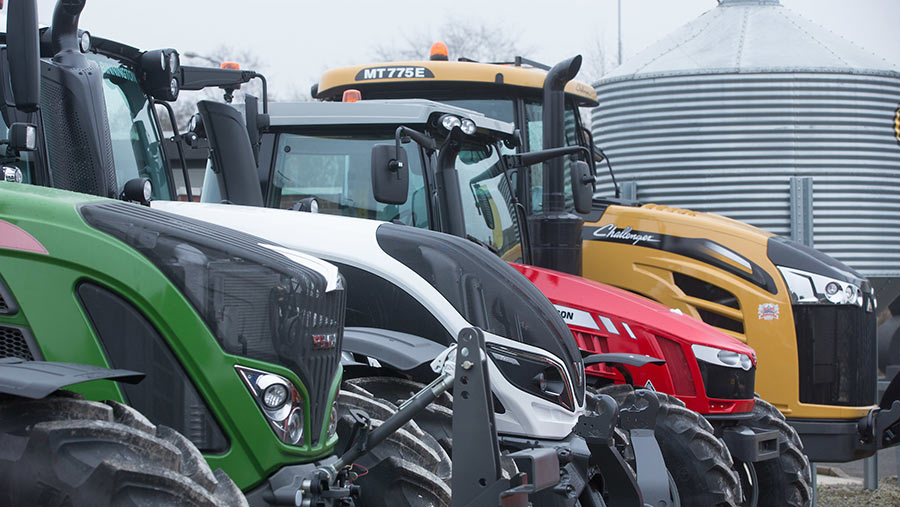2020 tractor sales see lift after Covid and weather slow market
 © Tim Scrivener
© Tim Scrivener UK tractor sales finished the year relatively strongly, but total sales over the whole of 2020 were down 14% on the previous year with poor weather and Covid-19 key factors.
A total of 776 tractors over 50hp were registered during December, according to latest figures from the Agricultural Engineers Association (AEA).
This is 25% higher than during December 2019, although the 2019 figure was 22.6% down on the same month in 2018.
See also: Machinery Milestones: The most unusual tractor launches
There were 10,380 new tractor registrations in 2020, compared with 12,040 in 2019.
Most of the year-on-year decline took place between April and July, when supply chains were adversely affected by Covid-19 disruptions, according to the AEA.
Between April and July 2020, there were 3,520 new tractors sold, compared with 5,400 during the same period in 2019.
However, for the final five months of the year, registrations were 11% higher than in August to December 2019, and from September onwards volumes were slightly above the average of recent years.
Although the number of tractors sold in 2020 was down on the previous three years, it is similar to levels recorded in 2015 and 2016.
Strong demand ahead
Stephen Howarth, AEA agricultural economist, said a combination of poor weather in early 2020 and Covid-19 disruption in April and May slowed the market during the first six months of the year.
“Once we were through the weather issues in particular, the market picked up and that has been reflected in the stronger registrations toward the back end of 2020,” he said.
“What we’ve been hearing in recent months is that the market has remained quite strong and, therefore, we would expect to see registrations being quite strong in the early part of this year.”
But Mr Howarth said further into the year was difficult to forecast.
“After that, a lot will depend on external factors such as the impact of leaving the EU and the challenges that will bring for our members and the agricultural industry more generally.”

